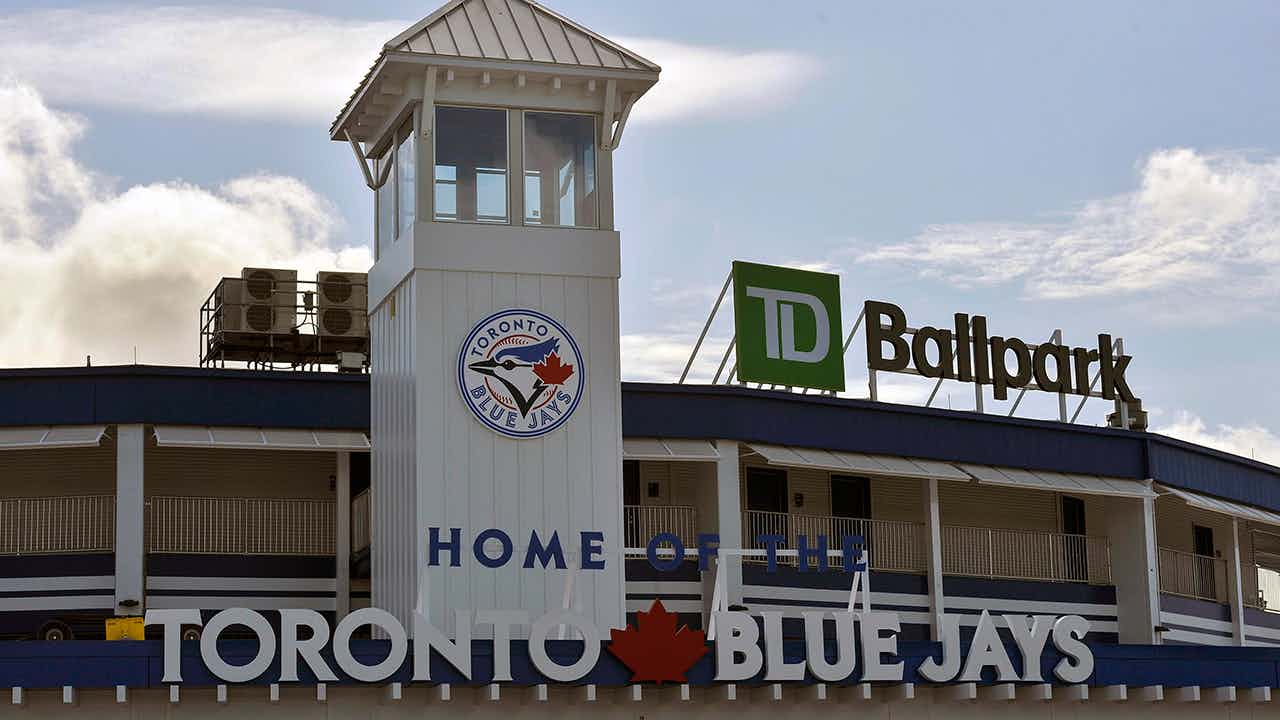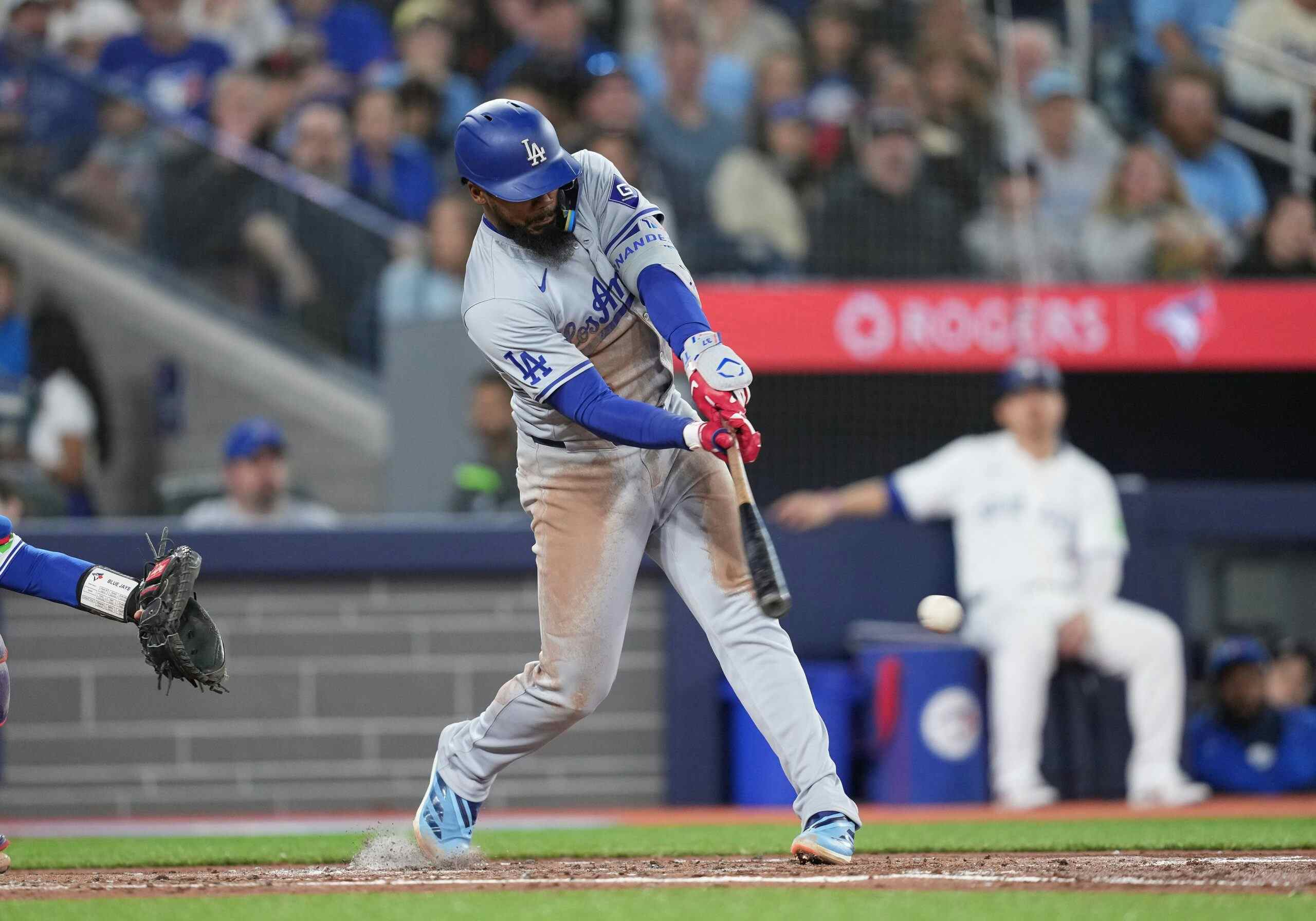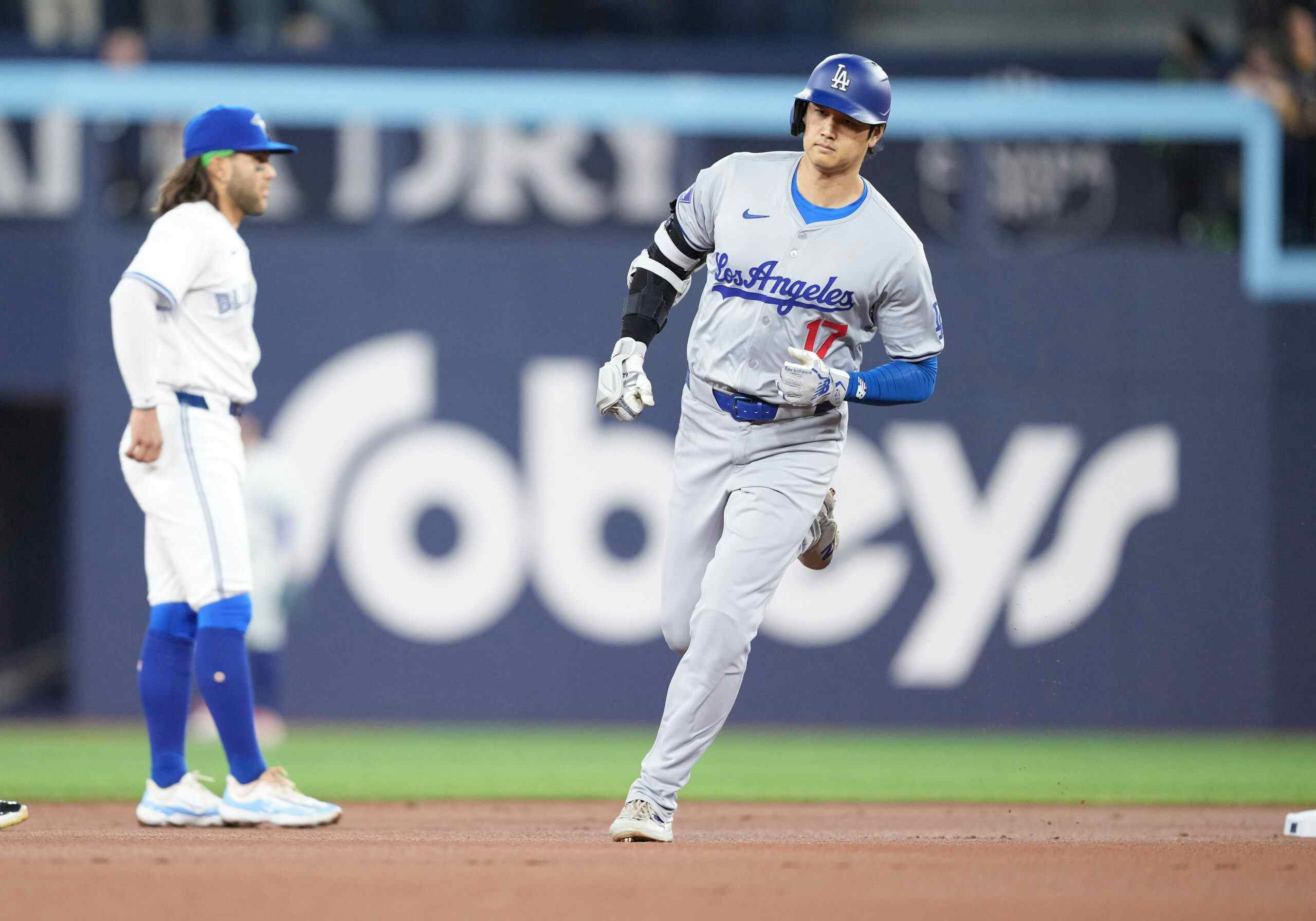Huh? Bo Bichette “turned down about four offers” before being selected 66th by the Jays

Photo Credit: David Banks-USA TODAY Sports
With their third pick of the night, 66th overall, the Jays selected Bo Bichette, son of former big leaguer Dante Bichette, and a shortstop (who’ll likely have to find a new position as a pro) from Lakewood High School in St. Petersburg, Florida. At one point — specifically a mid-May mock draft at ESPN.com — Keith Law had the Jays snagging him with their first pick.
You’d figure that would have been a reach, given that he was still on the board at 66, except… the draft has other dimensions that we don’t always think about. That sometimes we maybe didn’t even know about. And the players — especially high school players who hold the threat of going to college instead of turning pro — maybe sometimes have more leverage than we’d expect.
Particularly since, even though we all know pre-draft deals are commonplace (though against the rules), and that there are players who slide due to “signability” concerns, I think we basically expect that they don’t have a whole lot.
MLB’s changes to the draft under the current CBA were supposed to bring us closer to something like they have in other sports, where the order of selection essentially mirrors talent, but that certainly hasn’t been the case. A lot of times we focus on the way that teams take advantage of the system. It’s less often that we hear about it from the players side.
Speaking to Rodney Page of the Tampa Bay Times on Thursday, Bichette didn’t quite sound like a kid who just had his employer and the terms of his employment dictated to him by the draft process. “I actually turned down about four offers earlier in the draft because they weren’t good fits,” he said.
Even knowing what we do, the words land rather strangely, don’t they? Intentionally sliding to a lower pick — i.e. telling teams he won’t sign at their terms, so they’d be wasting a pick if they select him — seems obviously counterproductive on its face (though less so given that MLB’s absence of hard slotting means there’s room to negotiate).
For Bichette, fit may really have been important. “I may end up taking a little less,” he even says, which would make me roll my eyes if not for the geography. His high school is about 40 minutes from the Jays’ facilities in Dunedin, so I suppose I could see him using whatever leverage he has to keep from going to a team that does spring training out in Arizona (though he says the Jays “were the best in terms of player development” and “the top team I wanted to go to,” and that particular argument falls apart a little when you realize the college he’d committed to was Arizona State). But, perhaps not coincidentally, on Thursday at Baseball America, J.J. Cooper published a piece with the simple title In the 2016 draft, it’s all about the money.
“Don’t try to line up the high school talent tonight by the order in which the players are picked,” Cooper explains. “It’s likely that many of the top high school players in this draft will try to slide to the back of the first round, where there is more money to spend.”
To give an example: the Twins pick 15th. That pick is slotted for $2.8 million, a sizable amount that is more than all but 14 players in last year’s draft received. But that’s the Twins’ only pick in the top 50 picks of the draft. Compare them to the Dodgers, who don’t pick until pick No. 20, but also have picks Nos. 32 and 36. The slot for pick No. 20 is $2.3 million, a half million less than the Twins. But if the Dodgers decide to go cheap with just one of their top three picks and save $1 million, they can use that surplus to offer the same player $3.3 million, a half-million more than the Twins’ slot.
The Jays only had the one pick in the top 50 as well, but they did get an extra pick (57th overall, used to select Ole Miss slugger J.B. Woodman) for not signing Brady Singer last year, which means the slot values for their first three picks checks in at $4,387,700, meaning they certainly had some room to get creative.
Of course, at pick 66, Bichette didn’t exactly manoeuvre himself into the back of the first round. And he ranked a pick-appropriate 52nd on Keith Law’s big board, and 90th for MLB.com. So I’m not suggesting this is necessarily what was happening with him. (I’m not suggesting this wasn’t about money, either).
Still, he used his leverage, and that’s kinda fascinating. Not as fascinating as praising the player development system of an organization that hasn’t produced a decent hitting prospect since, like, Aaron Hill, but you know what I mean!
It hints at the level to which money is part of the puzzle (which I guess we could have figured), and just how different the dynamic between a team and a potential pick is than what we probably think it is (or how it’s supposed to be). Obviously there are players that get selected without deals in place, or with the framework for a deal less fully hammered out, otherwise you wouldn’t see picks going unsigned every year. But there’s obviously a lot going on behind the scenes, too. Even more than we realize.
Recent articles from Andrew Stoeten





